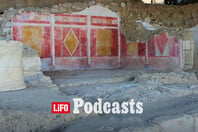"According to human rights organisations, at least 500,000 gay people live in Uganda out of a total population of 31 million, though the government of Uganda contests that number as inflated; the BBC states that it is "impossible" to determine the actual Number. Existing laws criminalise homosexual behavior with prison sentences lasting up to 14 years.These laws are REMNANTS of British colonialism designed to punish what colonial authorities deemed "unnatural sex" among local Ugandan people. Although many societies in Africa and elsewhere view homosexuality as a decadent practice imported by outsiders, it existed before European colonisation, often varying in practice depending on individual cultures. In some, male homosexuality was age-stratified, similar to ancient Greece where warriors purchased boys as brides, common when women were not available, or manifested as fleeting encounters as in prostitution".Despite this past, colonial influence has been pervasive; according to a reporter in Africa, "Africans see homosexuality as being both un-African and un-CHRISTIAN".Η Ουγκάντα, χώρα των 35.000.000, περίπου, με 85% χριστιανούς.Επίσης χώρα 8η (για το 2011) σε άτομα που ζουν με aids (όχι ότι αυτό έχει να κάνει απαραίτητα με τους ομοφυλόφιλους, αλλά υποθέτω ότι θα μπορούσαν να του κατηγορήσουν για τα πάντα, άλλωστε)Uganda is one of the poorest nations in the world, with 37.7% of the population living on less than $1.25 a day. Despite making enormous progress in reducing the countrywide poverty incidence from 56% of the population in 1992 to 31% in 2005, poverty remains deep-rooted in the country's rural areas, which are home to more than 85 per cent of Ugandans.Πολλά πράγματα, δυστυχώς, παίζουν τον (αρνητικό) ρόλο τους. Όπως αναφέρεται και στο άρθρο ανάλογο πράγμα έχει ξανασυμβεί στο παρελθόν και προτρέπει σε χειρότερα πράγματα. Δυστυχώς (ξανά) οι προβληματικές καταστάσεις ζωής και διαβίωσης γεννούν την ανάγκη για θύματα (διαφόρων) ειδών, φοβάμαι ότι αυτές οι πολιτικές δεν είναι *απλά* θέμα μίας προκατάληψης.
























